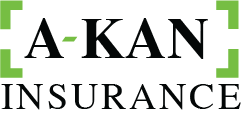Mitigate Risks Quickly and Effectively
According to a recent report from a Canadian commercial real estate firm, post-pandemic office vacancy rates in Canada are rising in many cities – prompting building owners to manage the impact on their insurance.
As a property owner, it’s important to note that lower occupancy does not mean you should reduce or even drop your insurance coverage.
Why do I need insurance if my building is vacant?
Even though usage will be less in a building that is not occupied, or partially occupied – you still need to consider central systems like heating and cooling and equipment breakdown insurance to protect you if something unforeseen happens to pressure vessels and boilers.
In addition, any tangible assets in the building still need to be protected from direct damage and subsequent business income loss.
Consider things like slips-and-falls on the premises if people still have access to the building – as the owner you’ll need legal liability protection against any third party claims as a result of any physical injury or property damage.
When it comes to managing your vacant commercial property, there are several steps property owners can take to mitigate risks.
VACANT OFFICE OR RETAIL PROPERTY: TOP 5 RISK MANAGEMENT TIPS
1. Regular Maintenance and Inspection: Vacant buildings are more susceptible to damage due to lack of regular maintenance. Regularly check the property for signs of vandalism, deterioration, and other potential issues such as leaks or structural damage. This could help prevent costly repairs in the future. 2. Secure the Property: Ensure the property is secure to prevent unauthorized entry, which can lead to vandalism or squatting. This can include the locking of all windows and doors, installing a security system, or even hiring a security service to regularly monitor the property. 3. Property Insurance: Talk to your broker about updating your insurance policy to ensure you have the right coverage for your vacant property. Many standard policies may not cover properties if they've been vacant for a certain period. In addition, specialized vacant property insurance can provide coverage for risks such as vandalism, fire, or water damage. 4. Winter Preparation: It’s important to prepare the building for cold winter temperatures. This includes draining pipes to prevent them from freezing and bursting, maintaining the heating at a minimal level to avoid damp and frost damage, and clearing snow and ice from the property to prevent structural damage or injury. 5. Stay Compliant: Take note of and continue to comply with all local laws and regulations regarding vacant properties. This can include maintaining the appearance of the property, safety regulations, and reporting requirements.
You may also want to consider developing a long-term strategy for the property. If it will be vacant for an extended period, you can explore possibilities like leasing, selling or repurposing it. Maintaining a vacant property can be costly, so it’s important to balance these costs against the potential benefits of keeping the property vacant.
An Insurance Broker can help you mitigate the risk in more ways than one.
With a proven track record of reliable service and customer satisfaction, Akan Insurance offers tailored insurance solutions to meet your specific needs.
CONTACT AKAN INSURANCE ABOUT YOUR INSURANCE REQUIREMENTS TODAY



